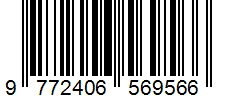Developing a Project-Based Learning Model to Enhance Critical and Creative Thinking Skills in Procedure Text Learning at SMPN 7 SATAP Maiwa
DOI:
https://doi.org/10.36232/interactionjournal.v11i2.1170Keywords:
Project-Based Learning (PjBL), Critical and Creative Skills, Procedural TextsAbstract
The purpose of this study was to examine the effect of developing a Project-Based Learning (PjBL) model to enhance students' critical and creative skills in learning procedural texts at SMPN 7 Satap Maiwa. The goal was to create a dynamic, engaging, and effective learning environment using the PjBL model to improve students' skills, particularly in English learning. This research employed quantitative methods to provide empirical evidence on the effectiveness of the PjBL model in enhancing students' critical and creative thinking abilities in procedural text learning. The development of PjBL in education has seen significant progress, especially in secondary English language teaching. This study specifically aimed to assess the application of the PjBL model in teaching procedural texts, with a focus on creating posters using the Canva application by analyzing a tourist spot. The study involved 15 students in the experimental group and 15 students in the control group. The results showed a significant improvement in the students' scores from pre-test to post-test in the experimental group. The average pre-test score for the experimental group was 68.66, while the post-test mean score increased to 86.33. In comparison, the control group’s pre-test and post-test scores were 57.66 and 82.66, respectively. Statistical analysis revealed that the p-value was smaller than the α level (0.001 < 0.05), leading to the rejection of H0 and acceptance of H1, indicating that the use of PjBL in learning procedural texts had a positive impact. In conclusion, this study suggests that integrating the PjBL model can effectively enhance students' critical and creative skills, contributing to improved overall learning outcomes.








